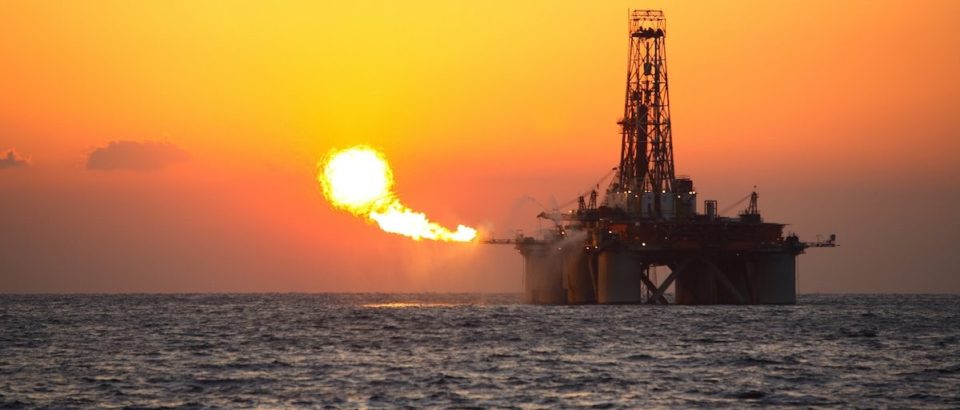Somalia’s offshore fields are estimated to hold 110bn barrels, which would place the country ahead of the United Arab Emirates.
It is said that British and Italian geologists were amongst the first to identify oil seeps in Somalia with Italy based Agip, now Eni and US based Sinclair Corporation being at the forefront of this according to a paper written by Dominik Balthasar of The Heritage Institute and titled “Oil in Somalia”.
Before the Somalia government collapsed in 1991, energy firms like Royal Dutch Shell and ExxonMobil operated in the country. Back then, Dharoor and Nuggel blocks, for instance, with acreage of 14,384 square kilometres and 21,784 square kilometres respectively, contained viable hydrocarbon fields in the range of 20 billion barrels of oil. Seismic surveys conducted by two British companies, Soma Oil & Gas and Spectrum Geo, sug-gest that Somalia has promising oil reserves along the Indian Ocean coast, between the cities of Garad and Kismayo.
Total offshore deposits could be as high as 100 billion barrels. But will the oil reserves and minerals benefit the local people, or it is the foreigners who will have a field day? With Soma Oil and Gas searching for hydrocarbon deposits off the coast of Somalia and the London based Energy Company returning positive findings in 2015, Somalia’s natural resources seemed cast in stone as a great blessing.
There was potential for recoverable oil and gas deposits. Such findings make the country, like a number of its East African neighbours, the envy of many due to the existence of such a world treasured natural resource but also a victim of the exploitation and curse oil drilling nations experience.
Balthasar’s paper touching on how the oil industry in Somalia offers a promising future while cognizant to the risks facing the nation if the resource exploitation is not carefully managed. Should things fail to go according to plan, a mineral find could add fuel to the fire begging the question; is Somalia ready for oil boom? If yes, will it be a curse or a blessing? Experts say that it is the politicians who bring about the complex scenario by white washing government.
Legislators simply bring conflicting contracts between them and other private oil exploiting companies, a move that, as always, the case, would make heads roll. It reaches a point where players are seek-ing to know the gains. It is at this point that disputes start to emerge. Resource race Oil aside, Somalia also has uranium, iron ore, gypsum, copper and salt.
Although several quotas fear that these natural resources are not enough as far as economic exploitation is concerned besides agriculture and livestock keeping being the primary sources of economic activity, they are worth discovered. It is also suspected that the south-central region of the country could hold amongst one of the largest world deposits of clay-mineral sepiolite, a soft white clay mineral used to make tobacco pipes; it is a magnesium silicate.
As Dominik observed, mineral exploitation in Somalia resembles what happened in Yemen. While there is the hope that these minerals would increase a nation’s per capita GDP of about $112 according to data by UN, the path to the achievement of this may not be a linear and could have negative effects especially to the fragile nation it is. Resource race is good when carefully planned and implemented. Like any developing country, Somalia is no exception to the promise that extractive industries have sparked.
The promise of economic growth and social development; yet in many instances this has not been the case as observed by the Institute for Security Studies in a publication titled “Exploiting minerals, exploiting communities”. Players have brought devastation to the countries they operate by destroying governance systems and economic structures. Consequently, there has been an upsurge in human rights abuse and environmental degradation.
Exploration and exploitation could easily open up a blood bath amongst the many opportunistic clans based political leaders. Many times, things have gone wrong when existing wounds and new ones are opened as the greed for dollars heightens. There is also a challenge in the border between Puntland and Somaliland as it would bring their forces to war or contest. African wealth has been siphoned out of the continent with collusion with some greedy local leaders working at the behest of their foreign masters while the natives languish in poverty and are killed by wars.
Angola, Democratic Republic of Congo and Nigeria are exampling that Somalia can glean on. In 2002, the United Nations observed that most Western countries involved in mineral exploitation on the continent were guilty of robbing from the Congo and thus Somalia is no exception. The clan-based leadership is an easy route for divide and rule, exploit resources and let the locals remain poor and kill each other. While a blessing, the minerals are a curse too.

